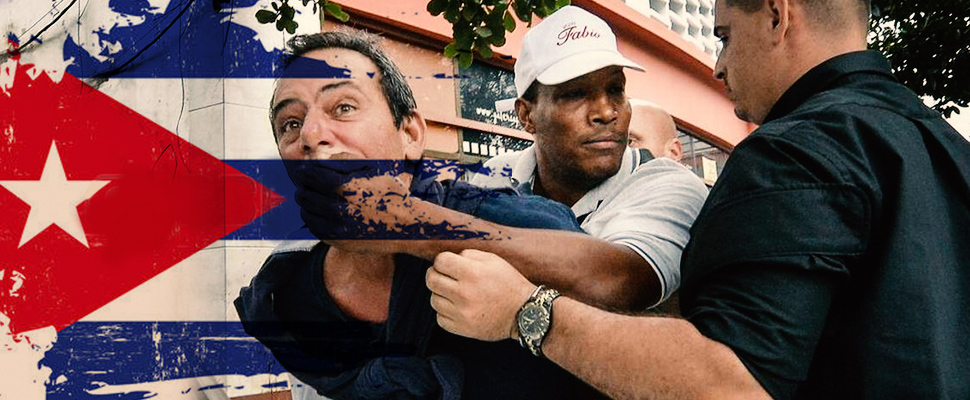Cuba: Why have there been 330 arbitrary political-detentions?
CCDHRN reports that every year, more than 5,000 people are deprived of their freedom due to political reasons

A recent report presented by the dissident group Cuban Commission for Human Rights and National Reconciliation (CCDHRN, for its Spanish acronym) showed that during the first month of 2018, there were more than 300 arbitrary imprisonments on the island, due to political reasons.
The organization, that works in the promotion and defense of human rights in Cuba, reports every month cases of political repression and transgressions to citizens. In its most recent publication, it was highlighted that on January 2018, 330 short-term arbitrary arrests, against peaceful Cuban dissidents, were verified.
Even though the figure shows a visible decrease compare to the first month of 2017 (487 arrests), the current number is higher than the calculated during the two immediately preceding months. In December and November, 316 and 302 arbitrary arrests were counted, respectively.
The report lists the names of each intercepted person by authorities, and it highlights that a big majority of citizens were detained while trying to attend to peaceful opposition activities. Same report also documents 14 cases of harassment and at least one physical aggression against a woman.
CCDHRN indicates as well that during January, state security police executed a wave of systematic dispossessions against opposition´s work places. The police confiscated computers, cellphones, and other office supplies. Government also applied high financial fines, which are aim to weakening opposition´s organizations.
According to data collected by the same organization, 5,155 short-term arbitrary imprisonments were documented in 2017. As a result, this number gives an average of 430 political arrests perpetrated by Cuban regime.
Beating and public shame: Tactics for repression?
In accordance to a report published by Human Rights Watch, the Cuban government continues to repress dissent and punish public criticism. Although arrests of human rights defenders, independent journalists, and opposition leaders, decreased in the past year, there are still many deprivations which are linked to repressive tactics employed by government authorities; for instance, beatings, public shaming, travel deprivation, and termination of employment.
CCDHRN, an independent human rights group that lacks official authorization and is considered illegal by the government, has been reporting for years the behavior of arbitrary arrests on the Caribbean island. Between 2010 and 2016, the monthly average of arbitrary imprisonments shot up from 172 monthly incidents to 827. This amount decreased significantly during 2017, where despite its more than 5,000 temporary deprivations of liberty, the figure represented a reduction of 50%, compared to previous years.
The government makes this type of detention to prevent dissent citizens from participating in meetings that go against the regime. Usually, recruitment does not last more than 48 hours, but all contact and communication are restricted during prison time.
Security officials almost never file warrants, and the detainees are released after receiving official warnings. These can be used by prosecutors during subsequent trials to evidence the alleged existence of “criminal behavior patterns".
The United States and Cuba reestablished diplomatic relations in 2015. Under the government of Barack Obama, restrictions on travel and trade -imposed decades ago-, were lowered. However, in June 2017, President Trump announced that he would revert what was agreed by the previous government. On October of the same year, he expelled 15 Cuban diplomats from the embassy in Washington, after US officials working in Cuba manifested mysterious illnesses, supposedly caused by sonic attacks against diplomats on the island.
Latin American Post | Krishna Jaramillo
Copy edited by Marcela Peñaloza





